Хаас за Канада
Ромен Грожан:
You trialed the latest Ferrari engine in Monaco. How did it perform and what are your expectations for it as you prepare for a more power-sensitive track in Circuit Gilles Villeneuve?
In Monaco, it’s very difficult to know what your engine’s doing, or what the power difference is, so I’m really looking forward to driving in Canada. I believe it’s a good step, and that should be clear in Montreal.
The tire compounds you ran in Monaco will be the same for Montreal. Considering these three compounds are the softest available from Pirelli, will they allow you to extract the kind of performance you want out of them, as the team has historically been able to make the C3, C4 and C5 compounds work?
We did really well in Monaco, and I didn’t know what to expect in getting the tires to work. Obviously, we got them to work very nicely, and performing really well in qualifying with Kevin, and managing 51 laps on the softs in the race on my side – which was pretty amazing. We had a really good pace. So, I believe it’s going to be OK. We need to wait and see, but I’ve got hope that we’re going to get them to work.
Rich Energy Haas F1 Team is coming off back-to-back points-paying finishes with its runs at Barcelona and Monaco. After struggling in Bahrain, China and Baku, do you feel you have a handle on what you need to marry the characteristics of the Haas VF-19 with the Pirelli tires to get the best out of both?
Now we’ve got a clear idea of what we need to do in terms of tires. We’ve been working really hard, so we know exactly where the window is. Now the question is how to bring the tires into that window. I think we’re getting better and better at that. Things should get a bit smoother, and I still believe we’ve got the fourth-fastest car on the track.
Qualifying remains Rich Energy Haas F1 Team’s strong suit. Considering how tight the midfield is again this year, is qualifying perhaps even more important than the actual race since it has so much influence in the outcome of the race?
Well, it really depends on the circuit. In Monaco, definitely, qualifying is key, but in Canada and other tracks, it’s a bit less important. Obviously, the higher up the grid you are, the better it is, but the race can always bring a good surprise if you haven’t qualified where you want.
Only four points separate fifth place from ninth place in the constructors’ standings. Can you provide some insight into the level of competitiveness in the midfield this year through the opening six races of 2019 and how you see it playing out through the summer stretch?
The midfield this year is super, super tight. Three tenths of a second in qualifying can put you in P6 or P7 or even P15. It’s very exciting. It’s a good challenge for the drivers. You’re pushing to the limit all the time. I think it would be nice if you were fighting for the win, or for pole position, but obviously the big teams are a bit too far ahead. We’ve got the potential of getting fourth place, but we need to put everything together, stop the small mistakes, and get those points going. I’m looking forward to being in Canada.
Montreal is home to one of your best finishes in Formula One – a second-place effort in 2012. What do you remember about that race and how did you achieve that result?
That was a great race. I started P7. I had a one-stop strategy while everyone else was on a two-stop strategy. Initially, I thought I would finish fifth or sixth as I was stuck behind the Mercedes of (Nico) Rosberg. I couldn’t overtake. Then, everyone pitted. The ones who didn’t were really struggling with grip, so I could overtake them. I didn’t quite have the pace to chase Lewis (Hamilton) and take the win.
How important was that second-place finish at Montreal in 2012 during the early portion of your Formula One career?
It was a great race and, obviously, a great result. I always try to do my best. It was a good race. I enjoyed it. It’s always important to strive for the highest finish you can and be as high on the podium as possible.
Кевин Магнусен: You trialed the latest Ferrari engine in Monaco. How did it perform and what are your expectations for it as you prepare for a more power-sensitive track in Circuit Gilles Villeneuve?
It was good to try the new engine. It looks like it’s a bit better and a good upgrade. Let’s see how it goes in Montreal with the longer straights.
The tire compounds you ran in Monaco will be the same for Montreal. Considering these three compounds are the softest available from Pirelli, will they allow you to extract the kind of performance you want out of them, as the team has historically been able to make the C3, C4 and C5 compounds work?
I think Monaco was a good race weekend for us, although the race didn’t go to plan. We were quick all through the weekend. It’s encouraging to have the same compounds for the next race.
Rich Energy Haas F1 Team is coming off back-to-back points-paying finishes with its runs at Barcelona and Monaco. After struggling in Bahrain, China and Baku, do you feel you have a handle on what you need to marry the characteristics of the Haas VF-19 with the Pirelli tires to get the best out of both?
We’re making progress in all areas. I still think we’ve got the fastest car of the midfield. I’m looking forward to the rest of the season.
Qualifying remains Rich Energy Haas F1 Team’s strong suit. Considering how tight the midfield is again this year, is qualifying perhaps even more important than the actual race since it has so much influence in the outcome of the race?
No. We’ve seen quite a few races this year where we’ve qualified well then didn’t score any points. Race pace is ultimately the points-paying factor. We need to focus on that.
Only four points separate fifth place from ninth place in the constructors’ standings. Can you provide some insight into the level of competitiveness in the midfield this year through the opening six races of 2019 and how you see it playing out through the summer stretch?
Well, I don’t want to look at the standings too much at the moment, but we’re going to try hard to make it look a lot better for the end of the season.
Гюнтер Щайнер: You trialed the latest Ferrari engine in Monaco. How did it perform and what are your expectations for it as you prepare for a more power-sensitive track in Circuit Gilles Villeneuve?
The performance of the new engine was very good. There were no complaints. Monaco, as we know, is not a track where the power makes a big difference. It’s always good to have it, but it doesn’t make a big difference. In Canada, we’ll really see how much better the engine is. We are hoping it’s a good boost and doing what it should be doing.
The tire compounds you ran in Monaco will be the same for Montreal. Considering these three compounds are the softest available from Pirelli, will they allow you to extract the kind of performance you want out of them, as the team has historically been able to make the C3, C4 and C5 compounds work?
We’re a little bit more hopeful than maybe where we were about four weeks ago. The soft family (of tires) in Monaco worked pretty well on our cars, so hopefully we can get them to work – get them up to temperature – in Canada, as well. We’ll only know this after Friday practice. It’s too early to tell.
You’re coming off back-to-back points-paying finishes with your runs at Barcelona and Monaco. After struggling in Bahrain, China and Baku, do you feel you have a handle on what you need to marry the characteristics of the Haas VF-19 with the Pirelli tires to get the best out of both?
I think we have a handle on the car, but we’re not 100 percent sure about the tires, because it’s so track-specific if the tire gets up to temperature or not. The only proof is when you get there and run on a Friday to see what you can get out of it. We are a little bit more optimistic than we were about four weeks ago.
Qualifying remains Rich Energy Haas F1 Team’s strong suit, with Magnussen earning best-of-the rest status at Monaco with a strong sixth-place qualifying drive that eventually became fifth when Pierre Gasly was handed a grid penalty. Considering how tight the midfield is again this year, is qualifying perhaps even more important than the actual race since it has so much influence in the outcome of the race?
Qualifying is always important, but it isn’t always the case, as we saw in Monaco. We qualified Kevin sixth, then started fifth with Gasly’s penalty, but we got home with no points from the car. The race is still important – it’s not just a qualifying race. For sure, qualifying is always important, though. It helps you to see how fast you really are.
Only four points separate fifth place from ninth place in the constructors’ standings. The midfield has always been tight since Rich Energy Haas F1 Team’s debut in 2016, but can you provide some insight into the level of competitiveness this year and, specifically, how a good race can turn out great from a points perspective and how a bad race can quickly drop you down the ladder?
Everybody’s close together, even fourth place is not far away, because if one team has a good result with both cars going, it’s easy to move up to fourth. Everything is very tight, especially between fifth and ninth. I think it’s good for the championship, and this has happened mainly because everybody’s struggled at some stage, so far. It will get more and more interesting as we move forward in the season. At some stage there will be two or three teams that move a little ahead, if everything goes to plan for them, but I still think it’ll be very tight. Everybody seems to struggle at certain kinds of tracks, but we’re not all struggling on the same ones. It’ll be interesting throughout the season.


















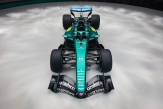
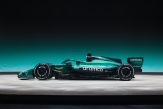
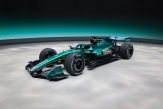

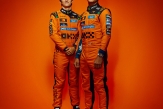
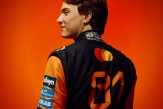
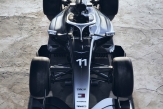
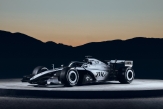
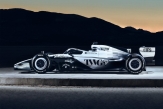
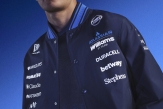
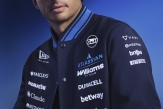
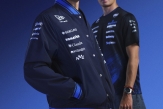
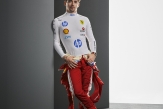
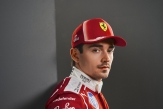
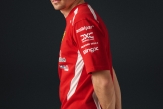
.jpg)
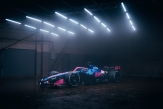

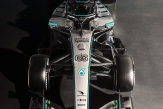
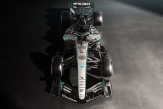
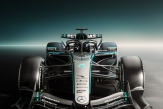
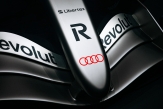
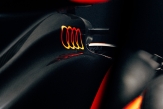
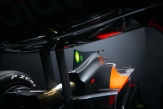
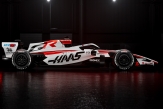
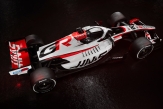
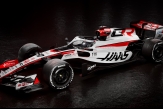

10/02/2026 от Огнян Тенчев (drJeckyll), няма коментари